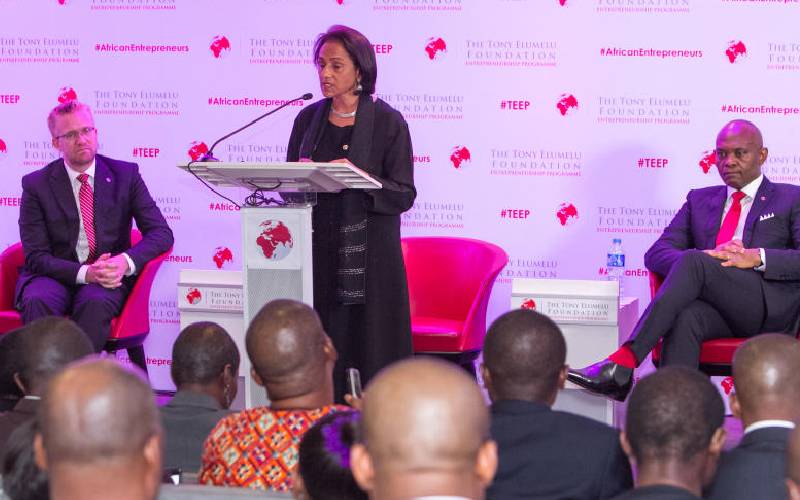
Tony Elumelu, the Nigerian billionaire in the Forbes list of African richest during the Tony Elumelu Entrepreneurship Program (TEEP) launch in Lagos.[Courtesy]
In total, the 18 billionaires from Africa in 2021 are worth $73.8 billion, an average of $4.1 billion each. Out of the 18, South Africa and Egypt have five each. Nigeria has three, including Aliko Dangote, the richest on the list. Morocco takes two while the remaining, though African-born, are residents or citizens of non-African countries. We take a critical look at what they all have in common, and the behind-the-scenes secrets to their success.